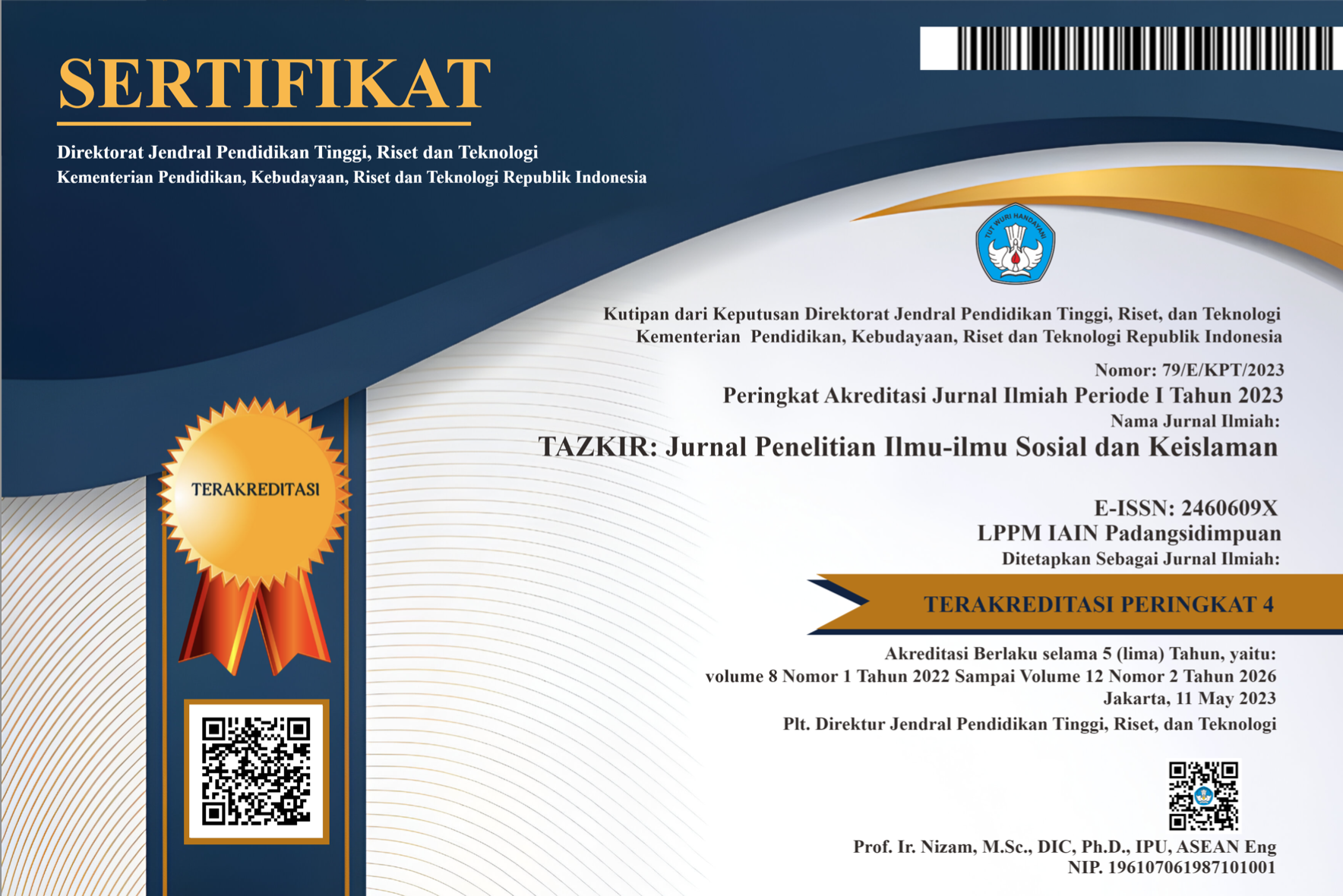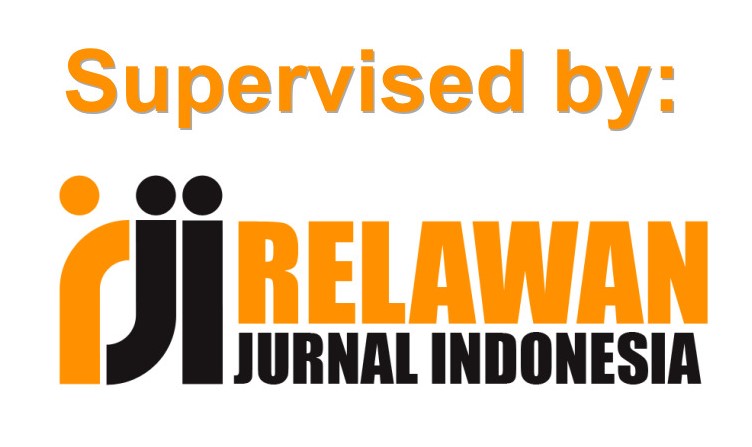PEMBERDAYAAN POTENSI ADAT DAN BUDAYA DALAM MENINGKATKAN KEHIDUPAN MODERASI BERAGAMA
Abstract
Keywords
Full Text:
PDFReferences
Abu Huraerah, Pengorganisasian dan Pengembangan Masyarakat, Bandung: Humaniora, 2008
Aziz Muslim, “Metodologi pengembangan Masyarakat,” Cetakan I (Yogyakarta: Teras, 2009), 113–16.
Dwi Pratiwi Kurniawati, Bambang, Imam Hanafi, “Pemberdayaan Masyarakat Di Bidang Usaha Ekonomi (studi pada Badan Pemberdayaan Masyarakat Kota Mojokerto),” Jurnal Administrasi Publik (JAP) Vol. 1, No. 4 (n.d.): 10–11.
Ginandjar Kartasamita, Pemberdayaan Masyarakat: Konsep Pembangunan yang Berakar Pada Masyarakat. Surabaya: Bappenas, 1997
Ife, J.W..Community Development: Creating Community Alternatives, Vision, Analysis and Practice: Longman. Australia, 1995
Jhon Lofland dan Lyon H. Lofland, Analyzing Social Setting; A Guide to Qualitative Observation an Analysis, Belmont: Wodsworth Publishing Company, 1984
Jim Ife, Community Development, Creating Community Alternatives, Vision, Analysis, And Practice. Australia : Longman AustraliaIfe, 1995
Kartasamita, Ginandjar. Pembangunan Untuk Rakyat, Memadukan Pertumbuhan dan Permasalahan. Jakarta : Cides Kartasasmita, 1996
Kabupaten Labuhan Batu Dalam Angka 2018, diakses pada tanggal 17 Maret 2022
Nyoman Sumaryadi, Sosiologi Pemerintahan Dari Perspektif Pelayanan, Pemberdayaan, Interaksi, dan Sistem kepemimpinan Pemerintahan Indonesia, Bogor: Ghalia Indonesia, 2018
Payne, M. Social Work and Community Care. London: McMillan, 1997
Robinson, J.R..Community Development in Perspective. Ames: Iowa State University Press,1994
Rusmin Tumanggor, dkk, Ilmu Sosial dan Budaya Dasar, Jakarta: Kencana,2015
Saifuddin Yunus, Suadi dan Fadli, “Model Pemberdayaan Masyarakat Terpadu,” Cetakan I, Banda Aceh: Bandar Publishing, 2017.
http://www.iainpare.ac.id/opini-tantangan-tantangan-persatuan-bangsa/
Poniran, Tokoh adat Masyarakat Jawa Kelurahan Danau Balai, wawancara pada tanggal 15 Juni 2022, di Danau Balai.
Suku Jawa, warga Kelurahan Danau Balai, wawancara pada tanggal 28 Juni 2022 di Danau Balai
Suku Jawa, Warga Kelurahan Danau Balai, wawancara pada tanggal 27 Juni 2022 di Danau Balai
Suku Tionghoa, warga Kelurahan Danau Balai, wawancacara pada tanggal 27 Juni 2022 di Danau Balai.
Putra Hasibuan, warga Kelurahan Danau Balai, wawancara pada tanggal 14 Juni 2022, di Danau Balai
Hilda Yolanda Ritonga, warga Kelurahan Danau Balai, pada tanggal 14 Juni 2022, di Danau Balai
Tresni, warga Kelurahan Danau Belai, warwancara pada tanggal 21 Juni 2022, di Danau Balai.
Elidawati Pohan, warga Kelurahan Danau Balai, wawancara pada tanggal 15 Juni 2022, di Danau Balai.
Antoni Ritonga, warga Kelurahan Danau Balai, wawancara padda tanggal 14 Juni 2022, di Danau Balai.
Waniem, warga Kelurahan Danau Balai, wawancara pada tanggal 14 Juni 2022, di Danau Balai
Misni, warga Kelurahan Danau Balai, wawancara tanggal 18 Juni 2022, di Danau Balai
Simatupang, warga Kelurahan Danau Balai, wawancara tanggal 18 Juni 2022, di Danau Balai
DOI: https://doi.org/10.24952/tazkir.v9i2.9671
Refbacks
- There are currently no refbacks.
Copyright (c) 2024 Budi Gautama Siregar, Aswadi Lubis, Barkah Hadamean, Ali Amran Hasibuan

This work is licensed under a Creative Commons Attribution-ShareAlike 4.0 International License.






